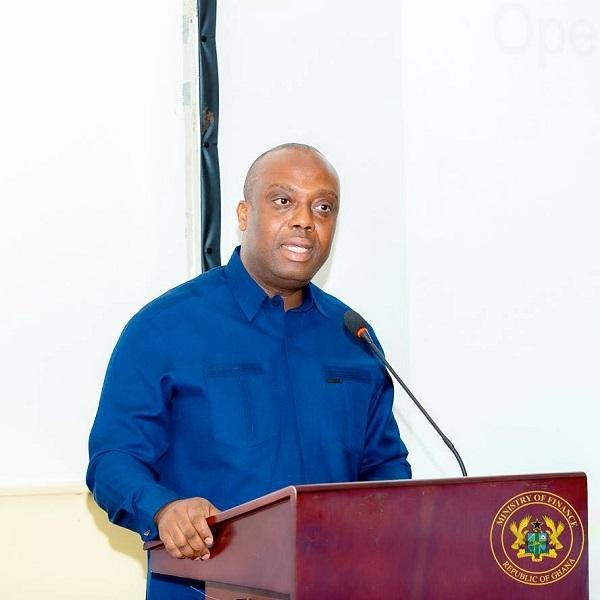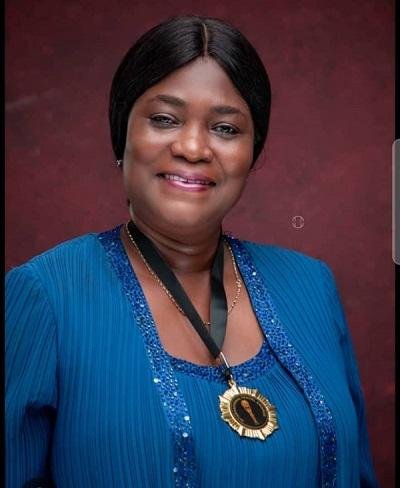News
Plan International Ghana urges MDAs to budget for child protection issues

Group picture with Plan International Ghana officials, school children
and staff of Jasikan Municipal Assembly after the forum
Plan International Ghana has called on Municipal and District Assemblies (MDAs) to take child protection issues seriously and include them in their annual budgets to enable them to deal effectively with them.
The Southern Programme Influence and Impact Area (IIA) Manager of the organisation, Mr Gamgama Mathias Mantia, made the call at a stakeholder’s forum with the Social Services Department of the Jasikan Municipal Assembly at Jasikan in the Oti Region.
Mr Mantia explained that Plan International Ghana through its child protection programme dubbed “Be Smart, Learn and Stay Protected”, had created awareness in the Jasikan Municipality over the years, therefore the need for the Assembly to budget for child protection.
According to him, protection of children would ensure their security and enable them to learn to become responsible adults in future.
Mr Mantia said his organisation had done a lot over the years, hence it was important for the assembly to protect the gains made.
The Programme Manager of “Be Smart, Learn and Stay Protected’ Mr Kofi Vieku said his outfit was satisfied with the interest shown by the Jasikan Municipal Assembly to incorporate the programme in its activities.
Mr Vieku said the organisation had established a strong foundation through its educational activities over the years, which had made stakeholders including parents understand the need to protect their children against all forms of abuses.
The Jasikan Municipal Coordinating Director (MCD), Mr James Awapoayi, said the Assembly was privileged to partner Plan International Ghana to protect children in the municipality.
He said the stakeholders’ engagement with Plan International would enable the Assembly to sustain the programme when they leave the area.
Mr Awapoayi assured that the Assembly would provide an annual budget including child protection to ensure that the impact made over the years would be sustained and also extended to other communities where the programme did not cover to enhance protection and welfare of children to develop their potentials.
A pupil of New Ayoma Primary School, Sophia Kamasah, appealed to the Assembly to allow children to participate in Assembly meetings to enable them to contribute to discussions to enable the Assembly to appreciate their concerns.
From Samuel Agbewode, Jasikan
News
Government to spend GH¢13.9 billion on infrastructure in 2025 – Deputy Finance Minister

Government will commit GH¢13.9 billion in 2025 to priority infrastructure projects under its “Big Push” initiative, with the amount projected to rise to GH¢21.2 billion by 2028, Deputy Finance Minister Thomas Ampem Nyarko has announced.
According to him, the funds will be drawn mainly from petroleum revenues under the Annual Budget Funding Amount (ABFA) and mineral royalties.
He indicated that the projects will focus on roads, transport, energy, power generation, digital infrastructure, and urban and rural development.
Mr. Ampem described the “Big Push” as an economic reset powered by a US$10 billion programme, stressing that the country’s infrastructure needs remain urgent.
He explained that Ghana requires US$37 billion every year for the next 30 years to meet development goals across sectors. Maintaining existing infrastructure alone, he added, will cost an extra US$8 billion annually.
The Deputy Minister drew attention to Ghana’s score of 47 out of 100 on the Global Infrastructure Hub index, which is below the average for lower-middle-income countries.
He argued that this was a sign of chronic underinvestment in critical sectors.
“Our cities need better transport. Our industries require dependable energy. Our farmers need modern irrigation. And our youth demand digital highways for the future,” he emphasized.
Mr. Ampem highlighted the limits of government spending, pointing out that the public purse cannot meet the demands alone. He stressed that Public-Private Partnerships (PPPs) are therefore indispensable.
He revealed that the Ghana Infrastructure Investment Fund (GIIF) will set up Special Purpose Vehicles (SPVs) to attract private capital, blended finance, and international development funding.
The Deputy Minister urged both local and international investors to explore opportunities in transport, energy, digital infrastructure, and urban development, describing them as “vast and transformative.”
He assured that the framework is in place, the vision is clear, and the government’s commitment under President Mahama’s leadership remains firm.
Mr. Ampem called for strong collaboration between government and the private sector, noting that sustainable infrastructure transformation will require a united effort.
The announcement was made at the KPMG Infrastructure Roadshow in Accra, held under the theme “Unlocking Ghana’s Public-Private Partnership Potential: Bridging Reform and Results”.
The event brought together policymakers, investors, engineers, and business leaders to explore strategies for accelerating infrastructure development.
By: Jacob Aggrey
News
Ghana Tourism Marketplace is good initiative – Alisa Asamoah

The immediate past President of the Tour Operators Union of Ghana (TOUGHA), Chief Executive of Riali Consult, Mrs. Alisa Osei Asamoah, has lauded the Ghana Tourism Development Company (GTDC) for its efforts to improve the viability of the sector through the Ghana Tourism Marketplace (GTM).
The GTM is an innovative platform that aggregates all tourism and hospitality vendors in Ghana, providing a unified platform for the distribution of their products and services.
The GTM is a shared economy model to benefit all stakeholders in the tourism ecosystem.
Speaking to the media after a stakeholder deliberation on GTM, Mrs.Asamoah said, this is what they are looking for. According to her, it is a good initiative by the GTDC.
“This is what we are all looking for. When you go to South Africa, and other countries, they have initiated the same thing,” he said.
She said this would positively impact the industry because that is where the private sector would exhibit their products, adding that it is going to be competitive.
Mrs.Asamoah concluded that this would increase trust between them and their clients, and from the presentation, the project would be very sustainable.
By Edem Mensah-Tsotorme






